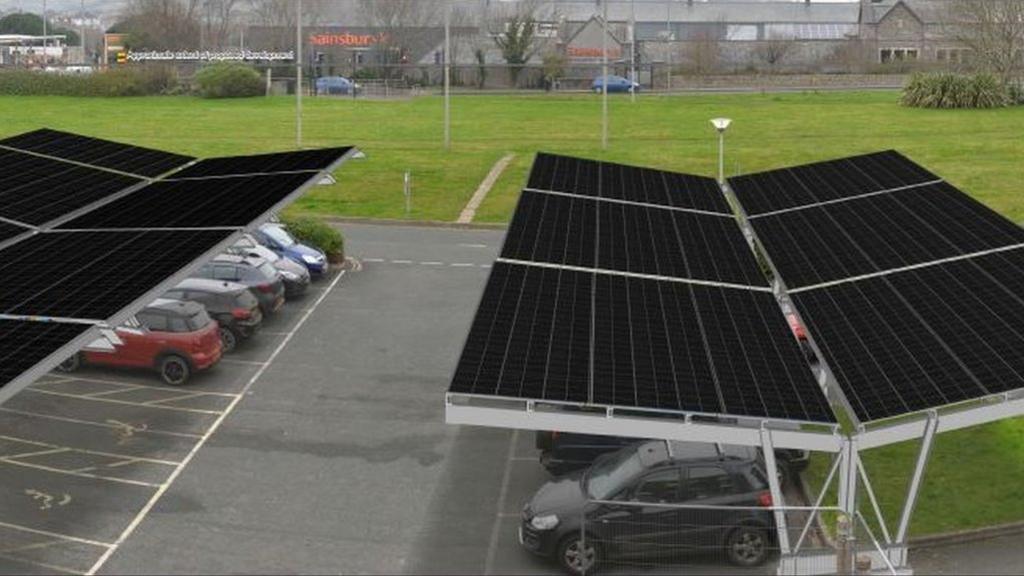Fears solar farm will look like 'ocean of panels'
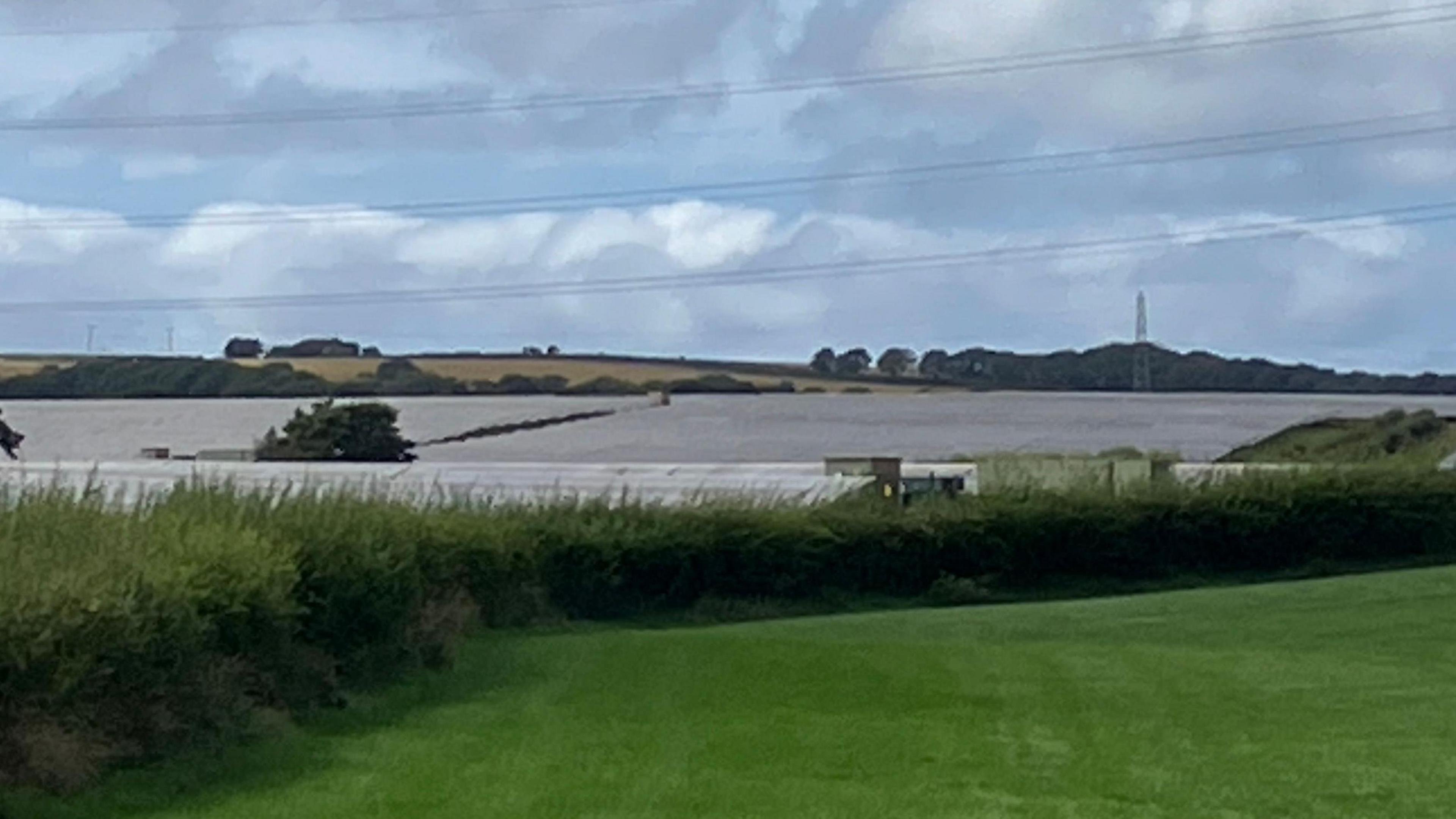
Plans for a 200 acre solar farm in Canworthy Water will be voted on by Cornwall councillors
- Published
Building another big solar farm in a Cornish village would create the impression of an "ocean" on the landscape, local people have argued.
Cornwall Council is due to consider a 200 acre site at Canworthy Water near Launceston at its strategic planning committee meeting on Thursday.
There is already a solar farm in the village and residents have said they have already taken their fair share of panels.
Developers Windel has insisted the project will help the UK meet its future renewable energy targets.
Lynette Hutchinson, chair of Warbstow Parish Council, said he was concerned about the visual impact the solar farm would have.
She said: "At the moment, you look down on the existing solar panels and that looks like a lake - which is a little bit disconcerting.
"With the two next to each other - it's going to look like an ocean.
"It's going to be a bit of a shock for people when they're out for a nice walk. This is going to be so big."
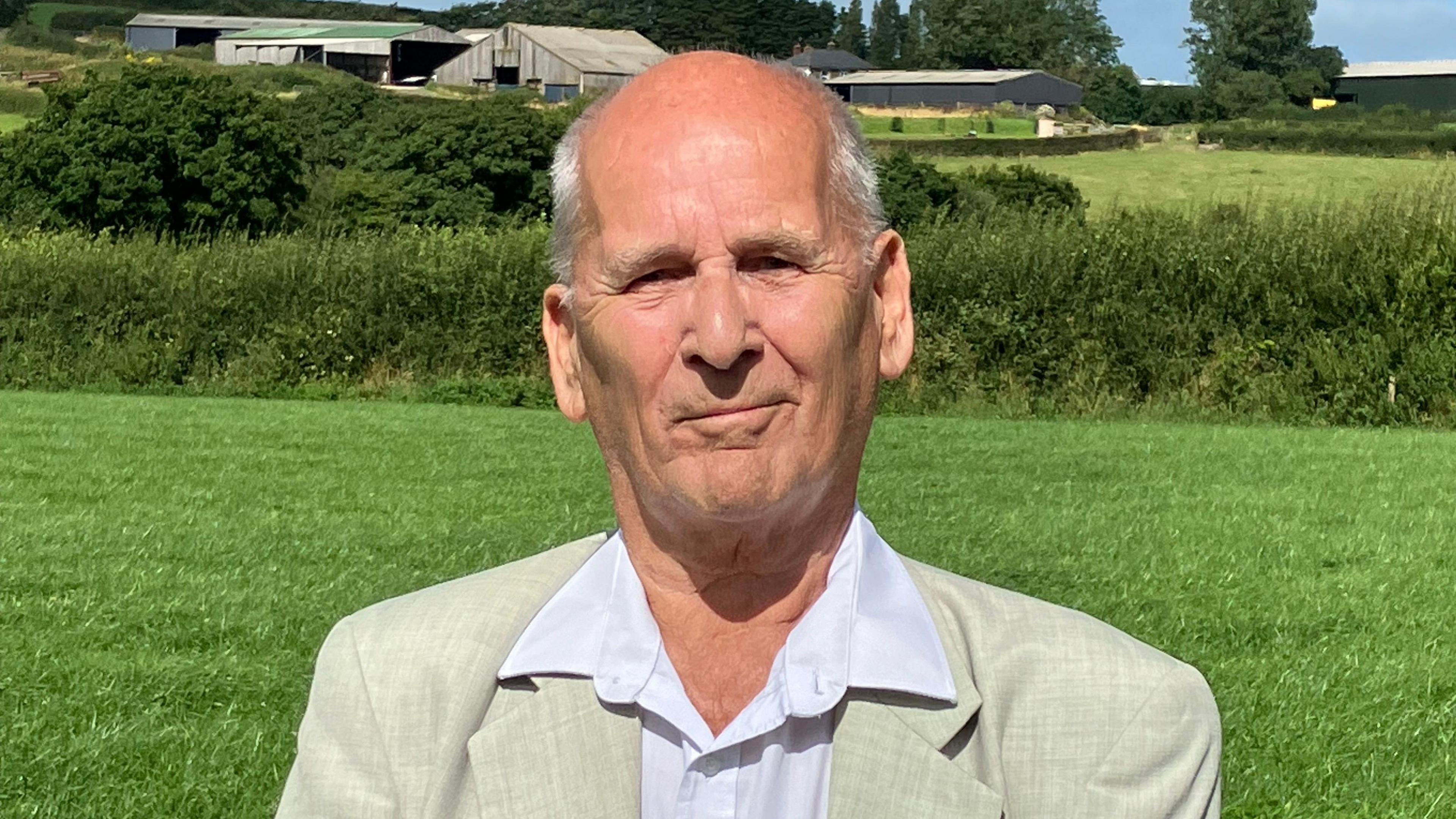
Councillor Barry Jordan thinks other forms of renewable energy in Cornwall should be explored
Labour has already signalled its support for solar farms - approving other projects in the country.
Cornwall Councillor Barry Jordan, who represents the village, admitted he was concerned that if the council rejected the scheme developers would win an appeal to the government planning inspectorate.
"They will just tick it off," he said. "We have to fight - we might win, but if we don't fight we'll never win."
He thought other sources of renewable energy in Cornwall should be considered before solar farms are built.
"I think geothermal could be because we've got hot rocks 5km hot and the hot rocks can produce electricity so there are other alternatives to solar farms," he argued.
Prof Peter Connor, an expert in Sustainable Energy Policy at the University of Exeter's Penryn Campus, warned digging for geothermal energy in Cornwall would be expensive and offer no guarantee it would provide enough heat.
"It's not going to deliver cheap electricity now, which is something we've already achieved with wind and solar. Those are technologies which are delivering," he said.
'A significant contribution'
Windel said: "The proposed solar farm will generate 42MW of solar energy, enough to power 11,000 homes per year.
"The scheme will make a significant contribution to the government’s Energy Security Strategy: Net Zero by 2050 and key targets including decarbonising the electricity system and increasing installed solar capacity up to 70GW by 2035."
The Department for Energy and Net Zero said: "Each development proposal will continue to be subject to thorough scrutiny, including consideration of land quality and food production.
"It is important people’s concerns are listened to, and where communities live near clean energy infrastructure, they should benefit directly from it."
Follow BBC Cornwall on X (formerly Twitter), external, Facebook, external and Instagram, external. Send your story ideas to spotlight@bbc.co.uk, external.
Related internet links
More stories about renewable energy
- Published25 June 2024
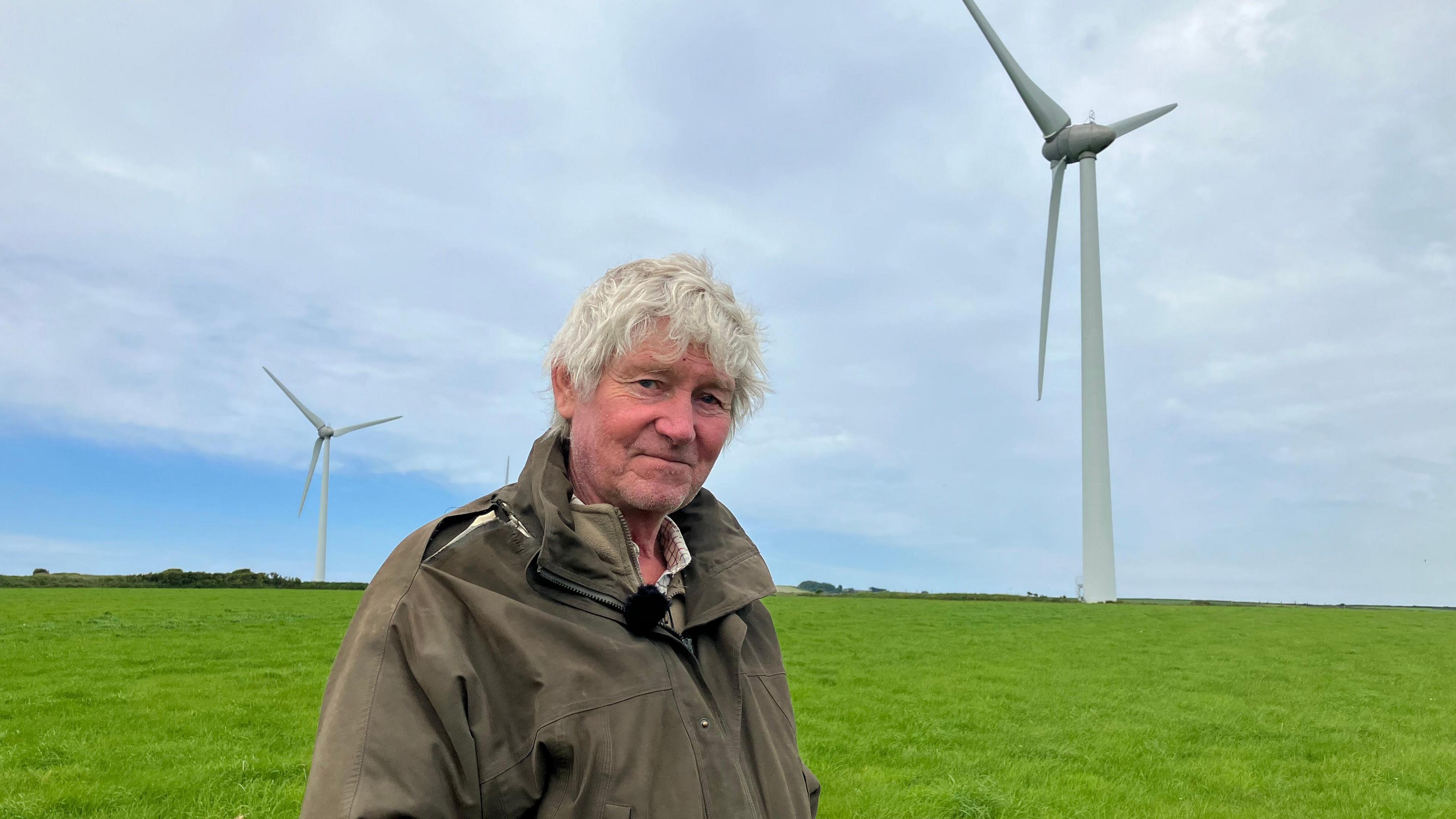
- Published16 March 2024
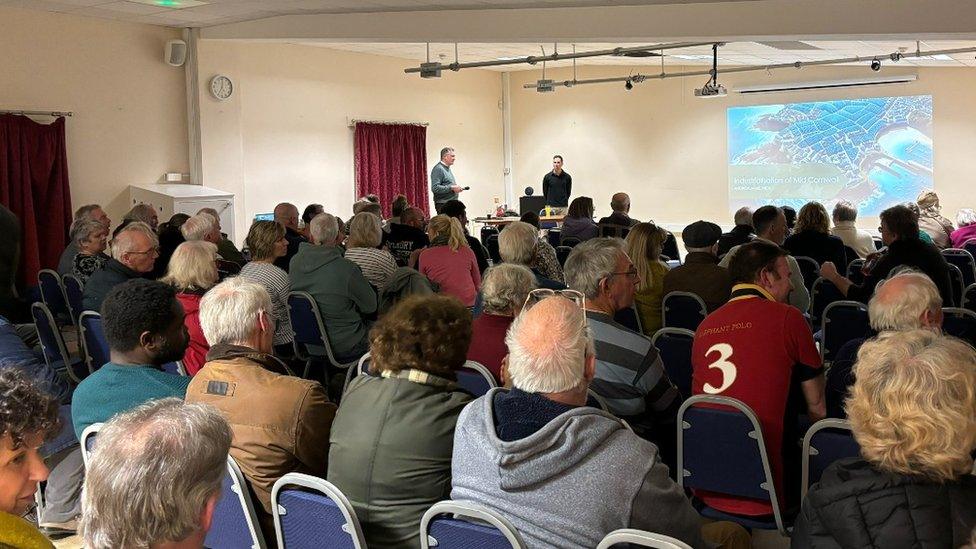
- Published15 December 2023
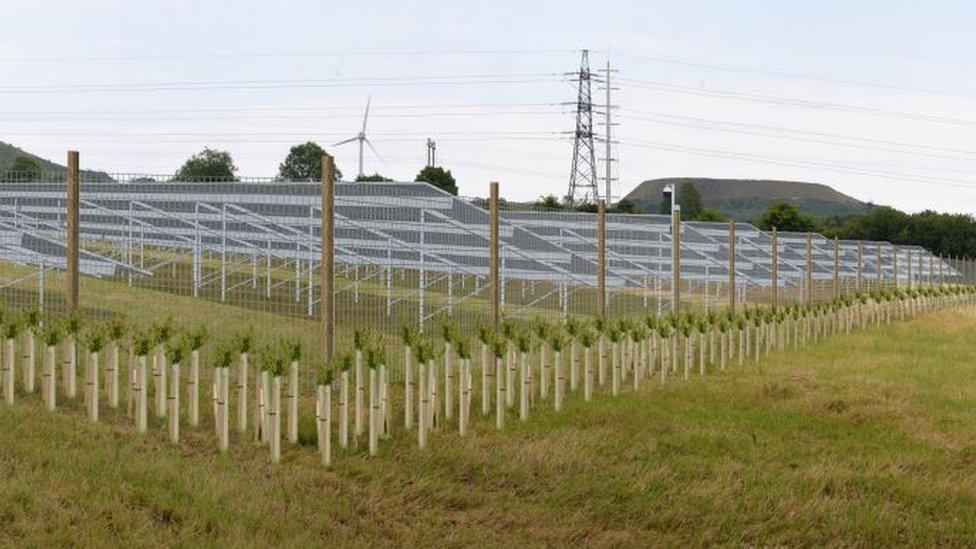
- Published11 December 2023
